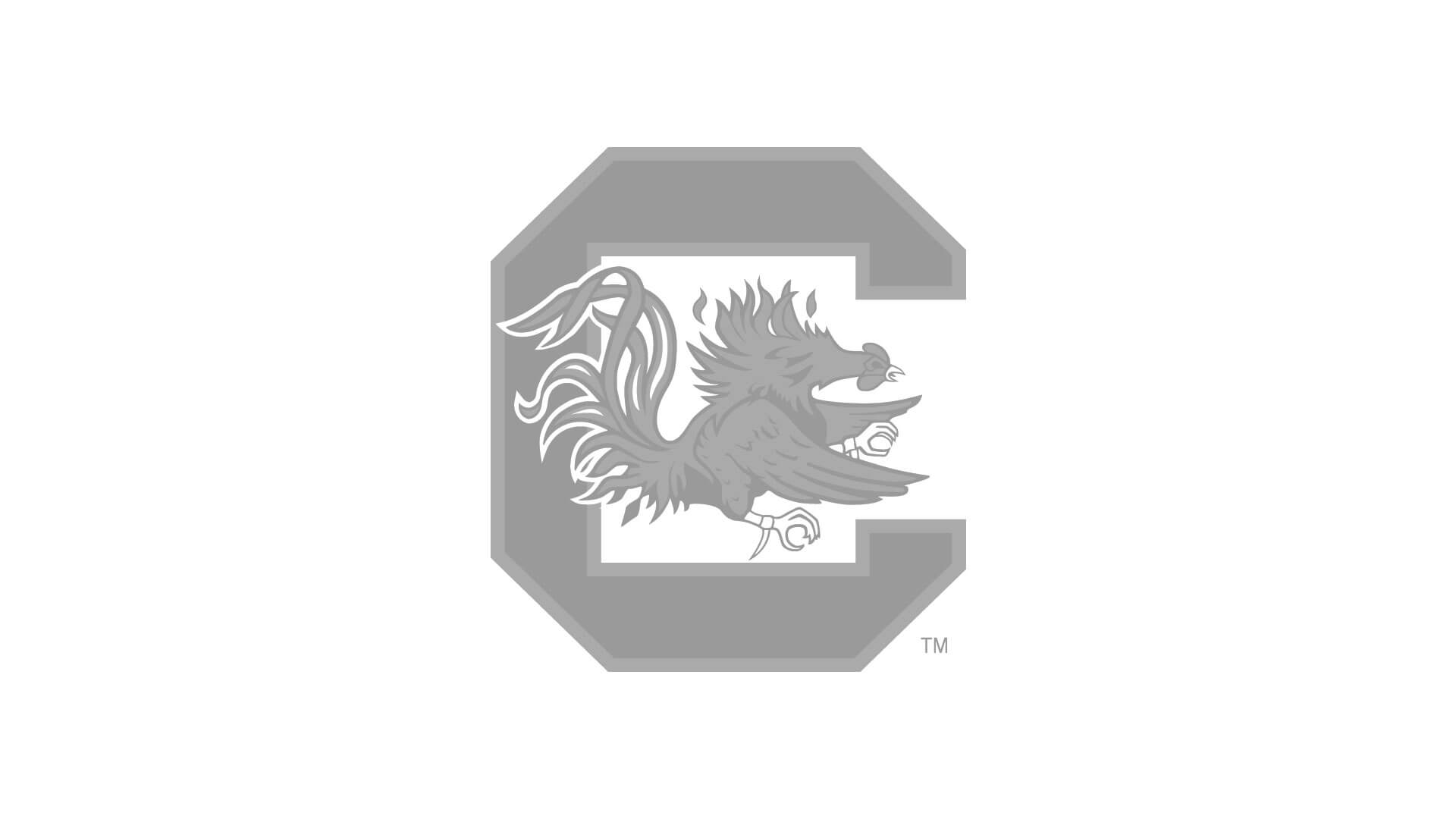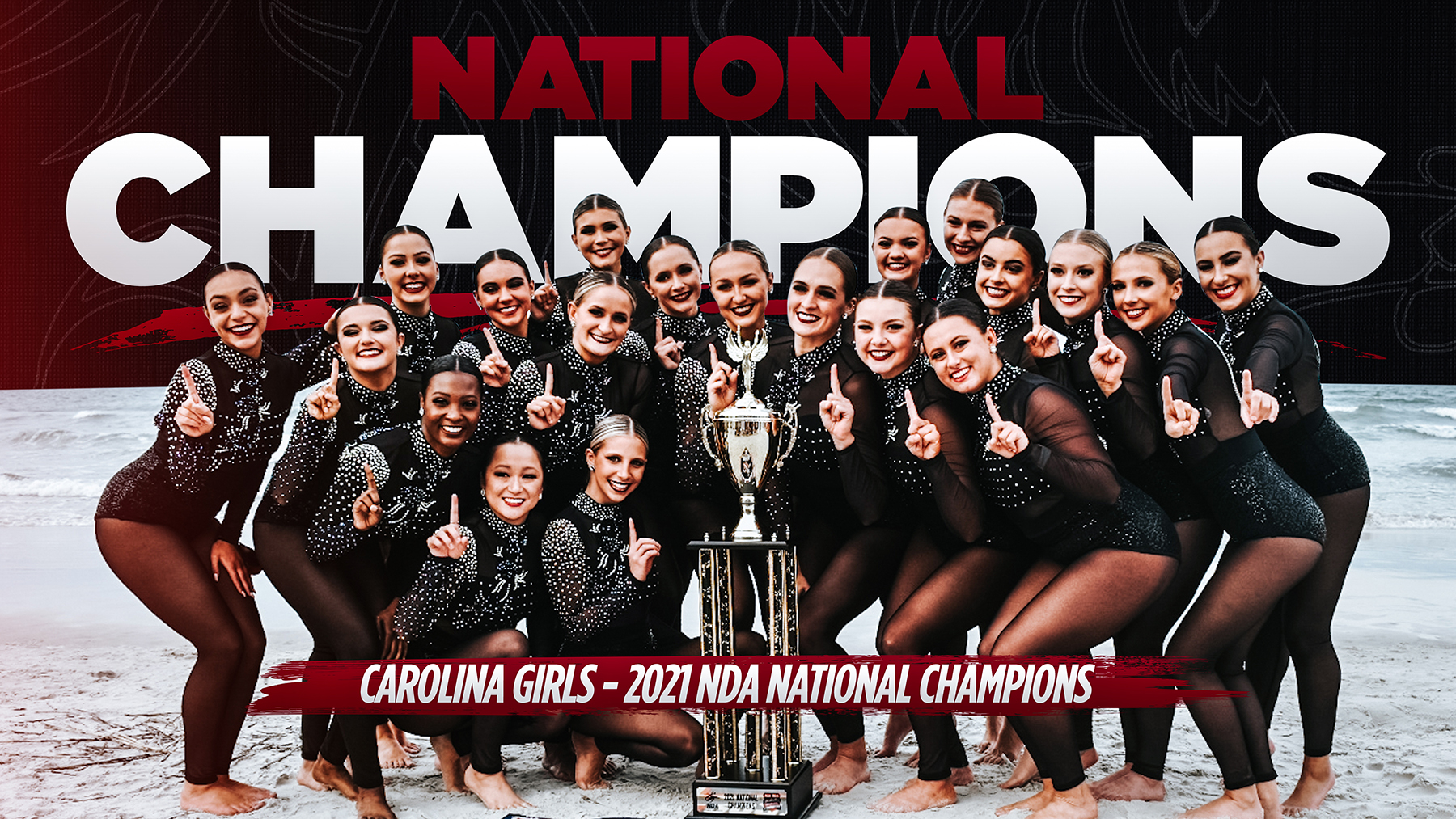Sept. 25, 2017

You don’t always see cheerleaders at South Carolina swimming and diving competitions, but don’t be surprised if there is at least one there this year. Nathaniel Fournel was a competitive swimmer growing up, and after being diagnosed with brain cancer at the age of 13, the South Carolina swimming and diving team befriended the then early teen. Now Fournel is a freshman cheerleader at the same school that cheered so hard for his recovery.
“Getting that support from South Carolina was a really big boost in my life,” Fournel said. “That’s the kind of impact I want to make through this. It drives me to support the school. I know how much it means.”
“When we first found out about Nathaniel a few years ago, one of the things I had told our guys is that we need to be his biggest cheerleaders,” said head swimming and diving coach McGee Moody. “He needs to know that he’s not alone, and that there are people who care about him and love him. Fast forward four years, and he becomes a cheerleader at an athletics department that cheered him on when he had cancer. It’s a neat way to see things come full circle for Nathaniel and for our program.”
Fournel’s relationship with the South Carolina swimming team began shortly after he was diagnosed with a brain tumor in December of 2012. Fournel was a member of a local club swim team that practiced at the Sol Blatt P.E. Center, where the Gamecocks compete. Moody became aware of Fournel’s plight after seeing many young club swimmers coming into the natatorium for their practice wearing t-shirts that read “Pray for Nathaniel.” After finding out what it meant, he reached out to Fournel’s parents about coming to visit him along with several of the Gamecock swimmers.
“We headed over to the hospital and spent an hour or so with him,” Moody recalled. “The guys kept checking in on him, and Nathaniel and Michael Flach (2009-2014) in particular developed a very close relationship.”
“We were there before or after they practiced sometimes,” Fournel said. “Within the first 14 days after I went into the hospital, I started chemotherapy, got put on a bunch of medications, and was stuck in the bed all day.
“I met them in the lobby, and we talked. I thought it was so cool that they were there. They brought some team stuff for me, and I thought that was so cool. That just made my day and made me forget about everything else.”
“A lot of people helped out in building that relationship with Nathaniel,” Flach said. “It was a huge team thing. He had been dealt one of the toughest hands you could ever be dealt. He didn’t complain once about the hand he was dealt. We wanted to help out Nathaniel and inspire him, but it turns out he really inspired us.”
It’s been neat to watch him fight that battle and see where he is now.
McGee Moody, South Carolina Swimming & Diving Head Coach
Fournel endured four rounds of chemotherapy over the next several months, and was able to attend some of South Carolina’s swim meets when his blood counts were high enough.
“They invited me to sit by the side of the pool and help coach,” Fournel said. “McGee would come up to me and tell me to say things to the team. It was really cool to sit with the swimmers and watch the races. It was an awesome experience.”
“At this point, the rest of our team knew Nathaniel,” Moody said. “I told him that our team seems to be happier when you’re around. They just seem to have more motivation. So I told him I want him to coach with us. I gave him the stopwatch, and I told him I wanted him to get the splits [times] and know how fast these guys are going. He was all in and telling me how fast they were all going on their last 50. He was high-fiving everyone. It was really good. We brought him on deck and put him to work. He was a great influence on our team.”

Fournel later took part in a clinical trial in New York to further eradicate what was a rare tumor that had a benign tumor inside one that was malignant. Before he flew out, former South Carolina All-American swimmer Michael Flach reached out and asked Fournel to meet him in the lobby of the hospital.
“He gave me a package after we had talked for about 15 minutes,” Fournel said. “He told me not to open it until he had left and I had gone upstairs. I was sort of confused. So I went upstairs to open it up, and it was his medal from the Olympic trials and a long note from him about how I inspired him to keep pushing. I couldn’t believe it. My first reaction was that I couldn’t accept it, so I texted him and he told me that was why he made me wait until after he left to open it.”
“They don’t give medals for fighting cancer and getting through stuff like that, but if anyone deserves one, it’s someone like him,” Flach said. “I just wanted to let him know how inspiring he was and how awesome he is.”
“That was emotional because I know how hard Michael worked to get that medal and how hard those are to get,” Moody said. “That was pretty special.”
Fournel still has the medal and currently keeps it in his dorm room.
Following the surgery in New York and subsequent treatments, which ironically ended on his birthday in May of 2014, Fournel would later try to get back into swimming. It was no easy task as the various treatments he endured had sapped his strength and stamina.
“I had been beaten down from chemo and radiation and not being able to do anything,” Fournel said. “I would go a little bit longer every day. I had gained nearly 30 pounds from the steroids the doctors had put me on. Getting back in was hard, but I’m glad that I did. What aggravated me the most was how long it took me to get back my 13 year old times. That was my goal.”
It would take a few years, but Fournel persevered and eventually beat his personal bests where he had previously excelled. He would continue to swim through high school, although he had stopped swimming for his local club midway through. The Gamecocks continued to invite Fournel to come to their home meets as well, and he continued to stay in touch with Moody.
“It’s a really cool thing because I know he still really cares a lot,” Fournel said. “Even though I’m not in treatment anymore, I still have checkups, and he still texts to ask how things are going.”
Fournel eventually became active in tumbling classes at a local gym as a way to get back into shape. Despite breaking his arm in a tumbling accident last January, Fournel bounced back. A family connection resulted in a conversation with cheer coach Erika Goodwin about trying out at South Carolina, and after being accepted into the University, Fournel made the team.
“It is such a cool experience,” Fournel said. “I love it. It’s been a learning experience. Everything is about technique and timing. It is a lot of fun. The toughest part is going into it kind of blind. I knew tumbling, but the cheer side of it was a whole new thing to me. I’m still kind of basic.”
After having the support of the Gamecocks when he was sick a few years earlier, it just makes sense that Fournel is cheering for South Carolina in an official capacity.
“I’ve had Nathaniel come and speak to our team,” Moody said. “Here’s a guy who is 14 or 15 at the time, and he’s standing in front of my team talking about what’s important in life. That’s a huge deal. It’s been neat to watch him fight that battle and see where he is now.”
While he’ll be busy with classes, practice and leading cheers in front of 80,000 fans at Williams-Brice Stadium, Fournel looks forward to a chance to get out to the Carolina Natatorium and support the program that was cheering for him when he needed it the most.
“McGee treats me like one of his own children,” Fournel said. “I will try to be there any chance that I am able to be there, because they supported me.”











